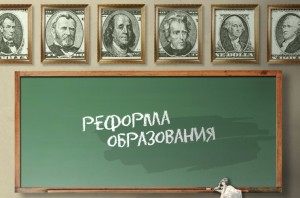
The population’s educational attainment is commonly considered as a key indicator of the country’s investment attractiveness. When in the early 1990s, Russia opened its domestic market for foreign investment, its population’s universal literacy and a considerably higher percentage of college-educated specialists than in other BRICS countries, that is in China, India, Brazil and South Africa, was seen as an important competitive advantage.
Unfortunately, Putin came to power at the exact moment when the country’s protective layer of quality education, that had been built over the previous years and was worn down considerably by a drastic transition to a market economy, demanded government attention financing and reform. Although prior to 2000 corruption had already blossomed in Russian universities, the country’s secondary and higher education system has been completely destroyed over the following 16 years. It was replaced by a new system, built under the national leader’s supervision, in which graduates’ actual level of knowledge does not matter since it is much more important for government employees to know how to please their superiors and how to take and give bribes.
Today, corruption calls the shots in science and education. Thus, according to the Dissernet project, plagiarism in dissertations of Russian officials has become a mass phenomenon affecting all three branches of power: extensive copying of sections of text from a source without quotation marks or proper citation has been found in dissertations belonging to Read More “Doctors of Science in Corruption”





